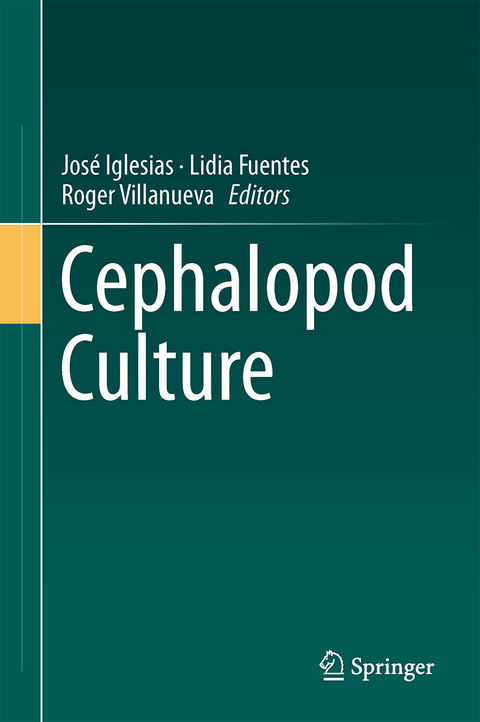
Cephalopod Culture
Springer (Verlag)
978-94-017-8647-8 (ISBN)
José Iglesias obtained his PhD degree in biology from the University of Santiago in 1982. He is an expert on Aquaculture, starting his research work in the late 70s. He has 30 years experience on ecology, biology, culture and enhancement of marine fish, octopus and spider crab. He published the first works carried out in Spain about species of great interest such us turbot, common octopus, spider crab, European hake and other pioneering studies about the ecology of demersal fishes and the stock enhancement in the Galician rías. He began to study cephalopods in 1996 when he obtained surprising growth rate of captured Octopus vulgaris individuals under culture conditions. Since then most of his research effort has been aimed at the aquaculture of this species; and one of his major achievements was to complete its cycle of life in captivity for the first time at experimental conditions in 2001. José Iglesias has also carried out a very intensive work of international cooperation on this subject, especially in Latin America. Roger Villanueva obtained his PhD degree in biology from the University of Barcelona in 1992. During this period he studied the taxonomy and life cycles of cephalopods from the Benguela Current boarding on fishing vessels for varying periods totaling more than a year. This was when his interest in the sea began and his curiosity about this group of molluscs arose. Back then he always worked with dead animals collected mainly from bottom trawlers. Thus, aiming to observe live cephalopods and to known their biology and behaviour from controlled laboratory conditions he conducted his postdoctoral studies at the Observatoire Océanologique de Banyuls (1992-94) in collaboration with Dr Sigurd v. Boletzky. Here was where his interest toward understanding the biology of the embryos and larvae of cephalopods started, as from the first day he saw thousands of tiny octopus hatchlings swimming in a tank. Thissubject is his main research interest until now, trying to identify how environmental factors influence the early life of cephalopods. Since 2001 he is tenured scientist at the Institut de Ciències del Mar, CSIC, Spain. Lidia Fuentes obtained her PhD degree in Sa Sciences from the University of Vigo in 2005, defending a thesis entitled “Culture methods, marking, tagging and restocking experiences of Octopus vulgaris”. She has worked in José Iglesias team since 1998 at the Spanish Institute of Oceanography and all her career has been linked to cephalopod culture.
PART I: Introduction.- PART II: Main cultured cephalopods.- PART III: Conclusions and future trends.
| Erscheint lt. Verlag | 9.4.2014 |
|---|---|
| Zusatzinfo | 53 Illustrations, color; 72 Illustrations, black and white; XIII, 494 p. 125 illus., 53 illus. in color. |
| Verlagsort | Dordrecht |
| Sprache | englisch |
| Maße | 155 x 235 mm |
| Themenwelt | Naturwissenschaften ► Biologie ► Ökologie / Naturschutz |
| Naturwissenschaften ► Biologie ► Zoologie | |
| Naturwissenschaften ► Geowissenschaften ► Hydrologie / Ozeanografie | |
| ISBN-10 | 94-017-8647-X / 940178647X |
| ISBN-13 | 978-94-017-8647-8 / 9789401786478 |
| Zustand | Neuware |
| Haben Sie eine Frage zum Produkt? |
aus dem Bereich


